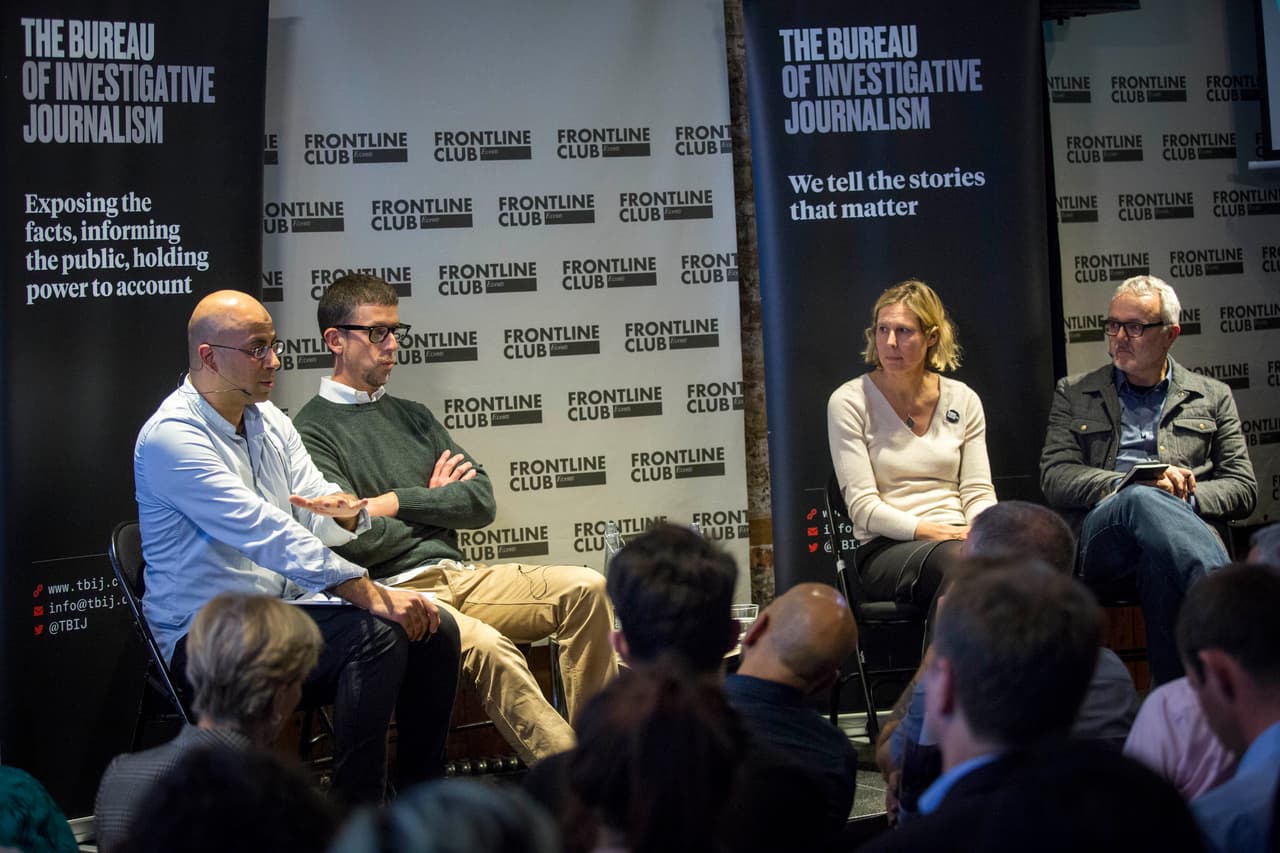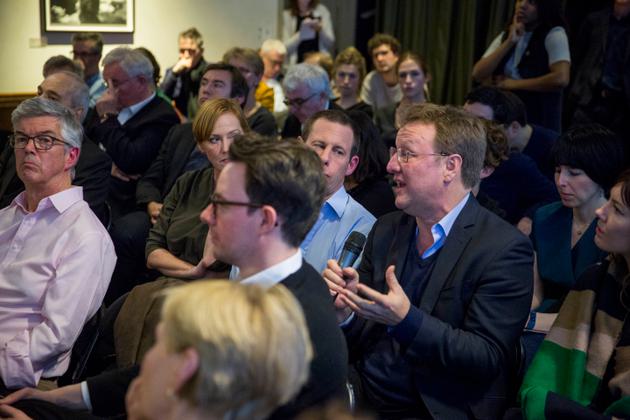
The Bureau's December 2017 event: reasons to be cheerful
What a turbulent year 2017 has been. We have seen so many far-reaching and traumatic events around the world requiring phenomenal reporting efforts. This has put an enormous strain on an overly stretched global media still being battered by tough operating environments.
But as we come to the end of the year we all at the Bureau of Investigative Journalism wanted to focus on some of the more positive trends happening in our industry today. This was our theme at a panel discussion and drinks we hosted at the Frontline Club in Paddington.
This was our second event in 2017 and we have more exciting events lined up for next year.
I was joined on the panel by Joaquin Alvarado, who until recently ran the Centre for Investigative Reporting in California (CIR), and Peter Bale, Launch Editor of WikiTribune. Our discussion was ably chaired by Sameer Padania, a consultant and researcher on trends and innovation in journalism.
I talked about how the launch of Bureau Local has proved that there is a real appetite for local news and a huge pool of talent up for collaboration on stories that matter. With the number of network members already exceeding initial targets, the project has shown the power of community, for both making and responding to news.
Before joining WikiTribune, Peter was Director at the Centre for Public Integrity and played a role in the Panama Papers. In his contribution to the panel he spoke about the collaboration behind both the Panama and the Paradise Papers and the vital importance of trust between the journalists who held on to the stories until the agreed launch moment.
With the benefits of his US perspective, where alternative forms of journalism, including philanthropically- and crowd-funded initiatives, are much more common, Joaquin Alvardao urged us all to be more creative and ambitious in our response to the challenges facing the media. His examples of the innovation he led at CIR, including turning journalism into theatre, inspired us all.
 BBC journalist Andrew Verity speaking from the floor, with Heather Brooke on his far right
via Rob Stothard
BBC journalist Andrew Verity speaking from the floor, with Heather Brooke on his far right
via Rob Stothard
The Frontline Club was packed and contributions from the audience were thought-provoking and valuable. Heather Brooke, an award-winning journalist, challenged the notion that anyone could be a journalist, and made a plea for recognition of the skills required to carry out quality investigative reporting. Andrew Verity, an economics correspondent for the BBC, defended the corporation’s reporting on Brexit and spoke about the difficulties of getting facts-based reporting to cut through.
The panel and our invited guests explored themes of collaboration, the potential of data to reveal stories and drive transparency, the cross over between campaigning and journalism, and the potential and actual role of culture and fiction, including TV series, in driving change.
The conclusions reached were broadly optimistic. There are inevitably challenges, both commercial and otherwise, in the current media landscape, but there are also examples of fantastic innovation and impact that give cause for hope.
With the right support, partners, strategies and vision we can do more of this sort of work. On this note, the Bureau used the event to launch our new Friends scheme. By giving £100 a month you can get privileged and advance notice of Bureau work, stories and events, and know you’re doing your bit to help tell the stories that matter. Take a look at the scheme below by clicking on the link.
Make change possible
Investigative journalism is vital for democracy. Help us to expose injustice and spark change
Click here to support usYou can watch the video of our event by clicking on the link below.
Pictures of our event by Rob Stothard




